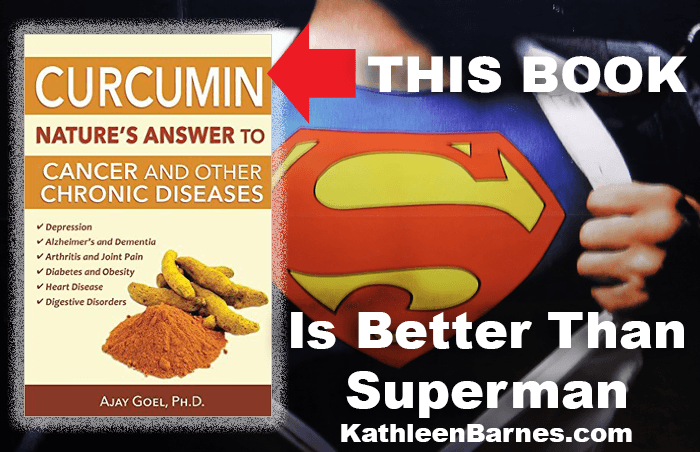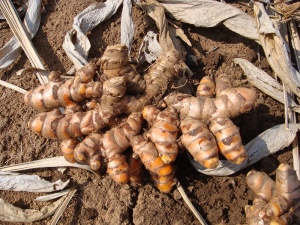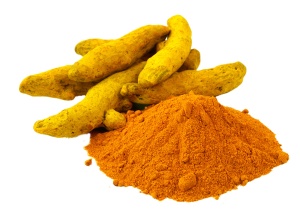Note from Kathleen: This is a sample chapter from Curcumin: Nature’s Answer to Cancer and Other Inflammatory Diseases, by renowned cancer researcher Ajay Goel, Ph.D., an important new book I published. This is vital new information about the prevention and treatment of cancer that will save many lives.
Curcumin has shown positive effects for every single disease for which it has been studied.
Its anti-inflammatory, antioxidant, antimicrobial and anticancer properties are unique in the plant world. That’s what makes curcumin the ideal botanical medicine to conquer virtually every type of cancer and many chronic diseases.
Clearly, nobody wants to have cancer. Without doubt, preventing cancer through a healthy diet and lifestyle is preferable, especially in view of the ineffectiveness and toxicity of the anticancer drugs currently on the market. Curcumin is an excellent preventive, as well as one of the most powerful tools we currently have to prevent and treat cancer. In fact, it is validated by more than 8,000 published, peer-reviewed, scientific articles.
So what is curcumin? If you love curry, you’re no doubt familiar with turmeric, the vivid orange-colored spice that gives curry its distinctive flavor. Inside turmeric is a compound called curcumin, perhaps the most powerful botanical medicine known to mankind.
However, as healthy as turmeric is as a spice, it has a very low curcumin content. Unless you were born into a culture that consumes turmeric-laden meals three times a day as part of your daily diet for your entire life, you’re unlikely to get any real health or medicinal benefit from consuming an occasional meal containing this tasty spice.
The curcumin content of turmeric is only 2 to 5%, depending upon the species of turmeric, and the climate and soil where it is grown in different parts of the world. Although turmeric may be the most natural way of achieving health benefits of curcumin, such an approach is not practical for those who can’t consume enough turmeric on a daily basis for a lifetime. That’s why turmeric is not likely to be anywhere close to as effective as curcumin for prevention or treatment for cancer or the other diseases we’re talking about. Curcumin is many times more powerful than turmeric.
Turmeric is the spice and curcumin is the medicine.
Turmeric is the healthy spice. Curcumin is the natural medicine present in turmeric.
This humble herb, used in India for millennia, has no known serious side effects and no toxicity, even when taken in large amounts.
Turmeric has been an integral part of the religious traditions and customs of India’s predominantly Hindu culture for more than 6,000 years. My compatriots in India eat large amounts of turmeric several times every day in their favorite curry dishes.
Cancer rates in India are very low, probably due to the universal consumption of turmeric and other medicinal herbs and spices people eat as part of their daily diet several times a day for a lifetime. Fewer than 1 million cases of cancer were reported in India in 2010 in a population of 1.2 billion. That means cancer is rare, striking only one in every 12,000 people in India.
Compare that to the shockingly high U.S. cancer rate. The lifetime cancer risk for an American man is 50% and 33% for women. In simple terms, the cancer rate in the U.S. is 30 times higher than in India.
They’re certainly doing something right in India, although it’s interesting to note that the cancer rate is projected to increase in the coming years, in part due to the increasing popularity of Westernized diets. I have no doubt that the traditional Indian diet has provided protection against cancer and other dread diseases. If my compatriots would continue to eat a traditional diet, I have no doubt their cancer protection would remain in place.
We’ve talked about the destructive effects of chronic inflammation. I’ll add here that curcumin is one of the most potent anti-inflammatory botanical substances known to science.
Curcumin: the anti-inflammatory powerhouse
Curcumin works as an anti-inflammatory to prevent the growth of cancerous cells in a variety of ways.
- It inhibits the COX-2 and NF-Kappa B inflammatory pathways, preventing chronic inflammation.
- It scrubs away the free radical oxygen molecules that promote the growth of arachidonic acid, a hormone that has been called “the mother of inflammation.”
- It controls the body’s production of cytokines, proteins that serve as molecular messengers between cells. When there are too many pro-inflammatory cytokines, chronic inflammation is the ultimate consequence.
- It slows or stops the production of certain enzymes, such as protein kinases, that increase inflammation.
If all of this science is a bit confusing, not to worry. It’s just important to know that curcumin works in these distinctly different, but powerful ways, to stop chronic inflammation that have been linked to cancer and other diseases commonly associated with the aging process. This means that cancer can’t get a foothold. Without chronic inflammation, there is no distorted reproduction of damaged cells that can eventually turn into cancer cells.
Antioxidant punch
Curcumin is also by far one of the most powerful antioxidants known to science, hundreds of times more powerful than blueberries and dark chocolate, which have substantial antioxidant capabilities themselves.
Curcumin literally scrubs the oxidative “rust” from your cells, preventing serious disease and reversing diseases you may already have. It helps stop cell deterioration and restores the cellular genetic codes to more youthful levels, ensuring those cells will reproduce more like they did when you were young, which helps to prevent cancer and many other diseases associated with aging.
On the ORAC (Oxygen Radical Absorbance Capacity) scale that rates the antioxidant power of foods, the higher absorption preparation of curcumin, BCM-95™, has been shown to possess over 15,000 in one single gram, while antioxidant-rich blueberries have only a 600 ORAC rating per gram. The BCM-95™ form of curcumin is one of the most clinically studied high absorption types of curcumin in the world.
Of course, this doesn’t mean you shouldn’t eat blueberries; they contain a vast variety of healthy nutrients. What this means is that just one high-quality curcumin capsule delivers more than 25 times the antioxidants as the same amount of blueberries.
Curcumin’s broad-based attack against cancer
In the coming chapters, we’ll examine the multitude of ways that cancer cells are created, survive and thrive.
We’ll talk about:
Epigenetics: A process that controls the behavior of our genes, our genetics. Dietary and lifestyle choices and exposure to toxins can alter the way our genes work. For example, they can cause some protective genes to go to sleep and may cause destructive genes to wake up. When this happens, diseases can take hold.
Apoptosis: The programmed life cycle of cells. This natural cycle can be interrupted by a variety of causes. When cells don’t die as nature intends, old and genetically flawed cells form tumors.
Angiogenesis: Cancer cells need nutrients and oxygen to survive, so they are able to create their own network of blood vessels, ensuring their survival.
Cancer stem cells: Super cells that govern other cancer cells and can remain dormant, sometimes for years, eventually causing cancer to recur.
Chemo-resistance: Cancer cells have the ability to evolve quickly and become resistant to chemotherapy treatments.
Chemo enhancement and radio enhancement: The ability of certain substances to sensitize and enhance the effectiveness of conventional chemotherapy and radiation therapies for cancer.
This is just the barest thumbnail explanation of the wide variety of ways that cancer takes hold in the human body.
As you can see, cancer is a tremendously complex disease. The present generation of anticancer drugs is designed to target a single gene or pathway within cancer cells, meaning each one approaches cancer in just one way. These mono-targeted drugs are the mostly commonly used conventional cancer treatments. They are largely ineffective precisely because they address only one small facet of cancer. They target one very small part of the complex network of hundreds of genes and pathways that cancer cells use for their survival, allowing those smart cancer cells to outsmart the drugs.
It is unlikely that we can successfully treat most cancers with drugs. Furthermore, virtually all conventional cancer drugs are outrageously expensive and only minimally effective. Increasingly, scientists have begun to realize that cancer can only be conquered if it is addressed from many directions.
That is why scientists have gone to great lengths to isolate active molecules (or medicines) from natural plant-based compounds. Nearly 75% of all approved anticancer drugs are derived from natural plant-based compounds or mimic certain aspects of the plant one way or another. As an aside, approximately 25% of all prescription drugs used in the U.S. are derived from plants.
However, these drugs, even the ones based on plants, are developed to address single-target pathways. Natural plant-based compounds, like curcumin, have the ability to target not just one gene or pathway, but to simultaneously control many different pathways. Such multi-targeted therapies, attack cancer cells from many directions all at once and reduce their ability to survive and thrive.
Curcumin is one such compound that has been validated in thousands of scientific studies. Though other botanical medicines have been tested and a few have some multi-targeting properties, none compare to the strength curcumin and its ability to address so many cancer genetic pathways at one time. This wide-ranging approach is far more effective in combatting this complex disease than the mono-targeted, modern, designer, chemotherapeutic drugs conventional medicine has unsuccessfully used for the past several decades.
In any case, if you have cancer, you should be working very closely with a trusted oncologist to determine all treatment approaches that are best for you. This includes the use of both modern and traditional options that are scientifically proven to help patients. If your physician is not familiar with the health benefits of curcumin and other complementary and alternative treatment medicines, educate your doctor about it. (See Chapter 13 for a synopsis of this book that I welcome you to print and give to your doctor.)
Have a meaningful and open discussion about the wealth of scientific evidence that has been published on the anticancer benefits of curcumin individually, and its use in conjunction with conventional cancer treatments.
I think this is the most natural route for conventional doctors to recognize curcumin as a bona fide treatment option for various diseases, including cancer.









